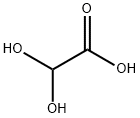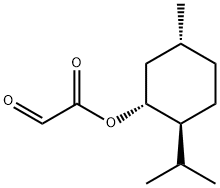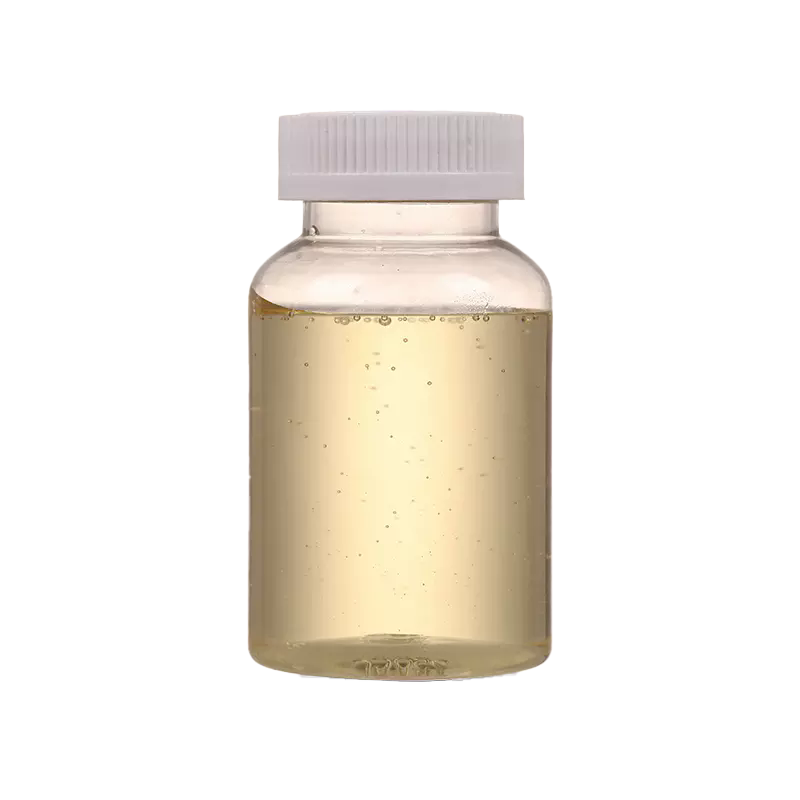Glyoxylic acid monohydrate
Synonym(s):Formylformic acid;Glyoxylic acid monohydrate;Oxoethanoic acid
- CAS NO.:563-96-2
- Empirical Formula: C2H4O4
- Molecular Weight: 92.05
- MDL number: MFCD00006958
- EINECS: 679-230-4
- SAFETY DATA SHEET (SDS)
- Update Date: 2025-12-26 12:07:08

What is Glyoxylic acid monohydrate?
Chemical properties
white to light yellow crystalline powder or chunks
The Uses of Glyoxylic acid monohydrate
Occurs in unripe fruit and in young green leaves; has also been found in very young sugar beets.
The Uses of Glyoxylic acid monohydrate
Glyoxylic acid is a reagent for sulfinylmaleate synthesis. It is one of the chemicals used in the Hopkins Cole reaction. It is involved to check the presence of tryptophan in proteins. It is condensed with urea and 1,2-diaminobenzene to form heterocycles. It also undergoes Friedel-Crafts and cyclocondensation reactions to form bis(pentamethylphenyl) acetic acid and a beta-carboline respectively. It is employed in the synthesis of a sulfinylmaleate, which serves as an efficient dienophile for enantioselective Diels-Alder cycloadditions.
What are the applications of Application
Glyoxylic acid monohydrate is a reagent for sulfinylmaleate synthesis
Properties of Glyoxylic acid monohydrate
| Melting point: | 49-52 °C(lit.) |
| Boiling point: | 100 °C(lit.) |
| Density | 1.33 g/mL at 20 °C |
| refractive index | n |
| Flash point: | >230 °F |
| storage temp. | Store below +30°C. |
| solubility | H2O: 0.1 g/mL, clear |
| form | Liquid |
| pka | 3.43±0.11(Predicted) |
| color | White to light yellow |
| Water Solubility | Freely soluble |
| Sensitive | Hygroscopic |
| Merck | 14,4511 |
| BRN | 969535 |
| CAS DataBase Reference | 563-96-2(CAS DataBase Reference) |
Safety information for Glyoxylic acid monohydrate
| Signal word | Danger |
| Pictogram(s) |
 Corrosion Corrosives GHS05  Exclamation Mark Irritant GHS07 |
| GHS Hazard Statements |
H290:Corrosive to Metals H315:Skin corrosion/irritation H317:Sensitisation, Skin H318:Serious eye damage/eye irritation |
| Precautionary Statement Codes |
P234:Keep only in original container. P261:Avoid breathing dust/fume/gas/mist/vapours/spray. P264:Wash hands thoroughly after handling. P264:Wash skin thouroughly after handling. P280:Wear protective gloves/protective clothing/eye protection/face protection. P302+P352:IF ON SKIN: wash with plenty of soap and water. P305+P351+P338:IF IN EYES: Rinse cautiously with water for several minutes. Remove contact lenses, if present and easy to do. Continuerinsing. |
Computed Descriptors for Glyoxylic acid monohydrate
| InChIKey | MOOYVEVEDVVKGD-UHFFFAOYSA-N |
New Products
4,4-Difluoropiperidine hydrochloride tert-butyl 9-methoxy-3-azaspiro[5.5]undecane-3-carboxylate Indole Methyl Resin N-Isopropylurea N,N-Dicyclohexylcarbodiimide(DCC) MELDRUMS ACID 5-METHYLISOXAZOLE-4-CARBOXYLIC ACID Magnessium Bis glycinate Zinc ascorbate 1-bromo-2-butyne 2-acetamidophenol 9(10H)-anthracenone Erythrosin B, 4-Piperidinopiperidine 2-((4-morpholinophenylamino) (methylthio) methylene) malononitrile 2,4-dihydroxybenzaldehyde 3-(4-morpholinophenylamino)-5-amino-1H-pyrazole-4-carbonitrile Methyl 2-methylquinoline-6-carboxylate 2,6-dichloro-4-nitropyridine 4-Bromo-2-chlorobenzonitrile 2-(benzylamino)acetic acid hydrochloride 4-(tert-Butoxycarbonylamino)but- 2-ynoic acid 3,4-dihydro-2H-benzo[b][1,4]dioxepine 1-Phenyl-1-cycloprppanecarboxylicacidRelated products of tetrahydrofuran








You may like
-
 563-96-2 Oxoacetic acid monohydrate 99%View Details
563-96-2 Oxoacetic acid monohydrate 99%View Details
563-96-2 -
 Glyoxylic acid CAS 563-96-2View Details
Glyoxylic acid CAS 563-96-2View Details
563-96-2 -
 Glyoxylic acid monohydrate 96% CAS 563-96-2View Details
Glyoxylic acid monohydrate 96% CAS 563-96-2View Details
563-96-2 -
 Glyoxylic acid monohydrate 95% CAS 563-96-2View Details
Glyoxylic acid monohydrate 95% CAS 563-96-2View Details
563-96-2 -
 Glyoxylic acid monohydrate CAS 563-96-2View Details
Glyoxylic acid monohydrate CAS 563-96-2View Details
563-96-2 -
 Glyoxylic acid monohydrate CAS 563-96-2View Details
Glyoxylic acid monohydrate CAS 563-96-2View Details
563-96-2 -
 Glyoxylic Acid MonohydrateView Details
Glyoxylic Acid MonohydrateView Details
563-96-2 -
 20677-73-0 (2,2-diethoxyethyl)methylamine 98%View Details
20677-73-0 (2,2-diethoxyethyl)methylamine 98%View Details
20677-73-0
